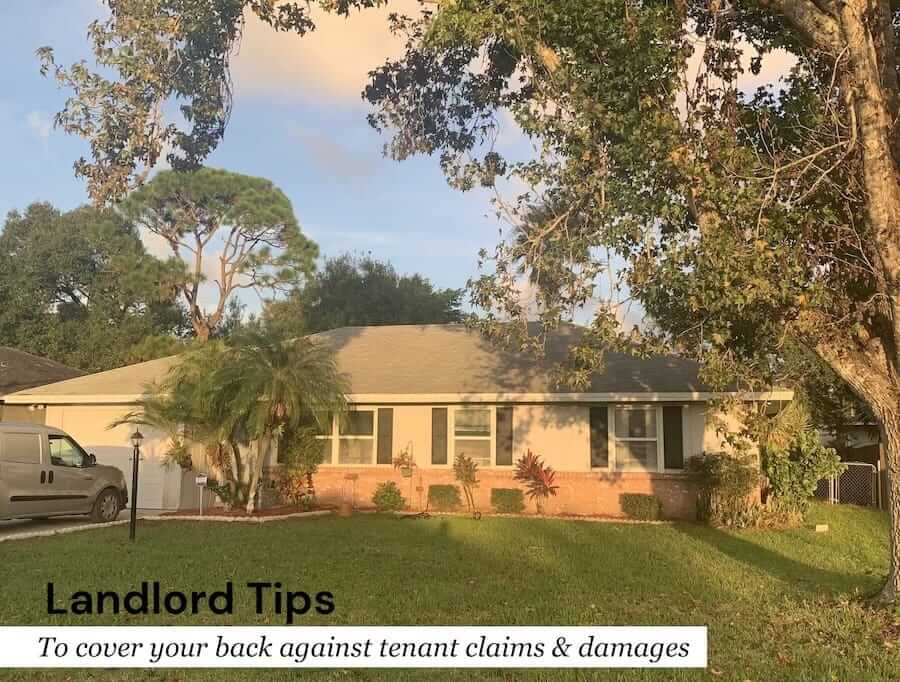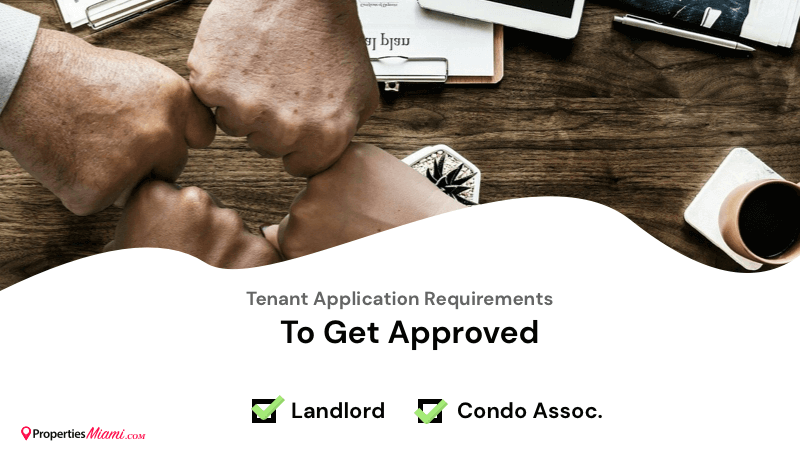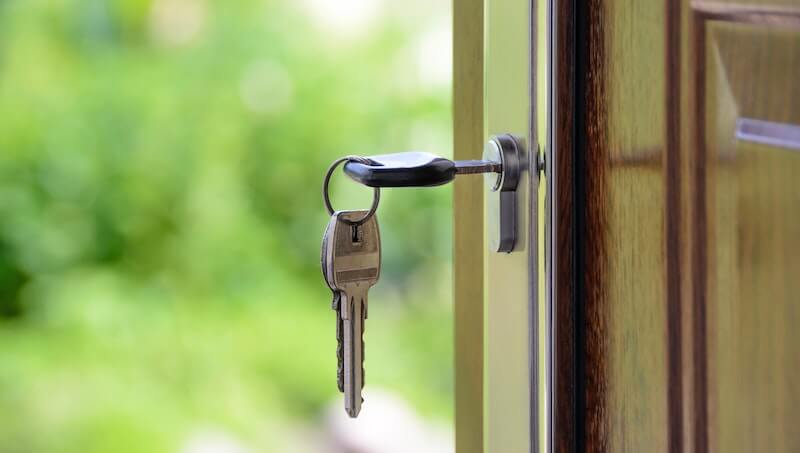Landlord Tips to Cover Your Back When Leasing Your Property

Even in this difficult economic climate and even if we are living in a “buyer’s market”, renting or leasing property to individuals or businesses is one of the most assured and consistent ways to make decent money. There is a reason why many of the world’s richest people own a lot of property and why any financial consultant worth their salt will tell you to invest any extra cash in property.
Certainly, it’s an awful lot more reliable source of income than, say, investing in the stock market. No matter what is going on in the world, space is always limited, especially in big cities, so it’s possible to nicely supplement your income or, if you have enough prime properties, to live comfortably entirely off the “passive income” of rent alone.
Mind you, the term “passive income” is something of a misnomer. Renting out a property takes work. Along with needing to keep on top of the ever-changing financial situation of your properties and most especially ensuring that your taxes are fully paid up, managing the needs of your tenants can become a full-time job (or the responsibility of a full-time employee). You, not your tenants, are responsible for all major upkeep of your property, including basic household repairs.
Furthermore, tenants can create major problems. The biggest issue will always be tenants who don’t pay their rent, as it is a long and complicated process to evict even those who default on their payment for months on end. Even the best tenants, though, can and probably will cause damages to your properties; worse, if someone else is injured on your property because of neglect to the property itself, you rather than your tenants may end up being liable to pay massive amounts in damages.
Insurance is obviously the only real solution, but since many potential adverse weather events in Florida can destroy your home, the wrong insurance can lead to severe issues with getting all, some, or even any of your money back. Without the proper measures in place, you can see your passive income turn into far higher expenditure as you try to set things right.
The good news is that covering your back when leasing your home to others is not difficult as long as you know what you’re doing. Make sure all of the following things are taken care of.
Open Communication
This might seem obvious and perhaps even non-helpful at first, but keeping an open two-way relationship between landlord and tenant can go a very long way towards covering you in the event of anything from household repairs to getting your rent on time to major, unforeseen damages.
Open communication means that, just for a start, tenants are much less likely to be negligent or even aggressive with your property if you treat them with respect and present yourself as more than just a detached landlord. It will convince tenants to report issues with wear and tear on your property before it starts breaking down to such a point that it will be either beyond repair or inordinately expensive to fix or replace.
A good relationship between tenant and landlord simply creates a sense of trust that is all but guaranteed to have significant financial benefits. This is most crucial in getting your tenants to agree to sign up for the required insurance to cover both of you for any particularly detrimental issues that may occur.
Florida Property Assessments
Your property needs to be assessed at least annually to ensure that it still meets statewide safety standards. These assessments will check that your property is prepared for all eventualities, including fires, electrical faults, natural disasters, and human error. This does not mean your property needs to be immune to these things, but rather that it has the best chance of staying up and that there are easy ways for tenants to vacate.
If you don’t do these assessments and a tenant incurs damages on your property because of this, they can claim damages against you, and your insurance may not payout. It can be a slight inconvenience, but it is worth taking this ultimately small precaution.
Regular Maintenance
Every home needs regular maintenance, no matter how old it is. Maintenance keeps your property in good shape and protects against issues that arise over time. When you have tenants staying on your property, it is especially important. Of course, arranging repairs when something goes wrong is a basic responsibility you have towards your tenants. However, prevention is far better for your bottom line and in case of any accidents that happen on your property.
Spend Money to Save Money
On a similar point to maintaining your property regularly, it is in your interest not to choose a repairman, plumber, or electrician for routine repairs based purely on how cheap they are but whether they are likely to do their jobs properly. Similarly, if installing a new bath or toilet, don’t go for the cheapest material but that which will last constant use by multiple clients. It may cost you more in the short term, but it will save you on constant, often very costly repairs. Most importantly, good quality work will make the chance of an unfortunate accident happening to your tenant much less likely and will keep the need to rely on liability insurance for every small issue to an absolute minimum.
Florida Landlords and Renters Insurance
Having the right insurance policies in place is crucial, especially in Florida, as natural disasters and human error can damage your property no matter how well you prepare. As a landlord, you need landlords rather than homeowners insurance. Landlords insurance considers the fact that you are not the person on the property, along with the risks specific to landlords.
You can also encourage (or require) your tenants to get Florida renters insurance. Renter’s insurance covers their possessions in case of theft or damage, and it also covers damages they cause to third parties, which could mean that their insurance pays out when they cause damage rather than you having to claim from your own.
Disclaimers
When arranging a lease, you need to include disclaimers that absolve you of liability in case of injury, theft, and other damages. This ensures that your tenants cannot sue you if they incur losses due to events that are due to their own negligence or could not have been prevented.
However, this does not absolve you of responsibility when your negligence leads to the damage. For example, if your tenant trips over their shoelaces and falls down the stairs, they cannot claim their health costs. However, if they step on a stair that has been neglected by you and their foot goes right through it, they can claim any damages no matter what you write into the lease.
Lawyer Up
Being a landlord can be so complicated and often intricate a job that you don’t want to rely purely on your own expertise to make sure you have all your bases properly covered. While a permanent manager overlooking your property could be a huge help, a manager goes from being a good idea to being entirely essential if you’re dealing with multiple properties.
Even more important, though, is employing a fully qualified lawyer to look over, or even fully take care of, all matters involving your renter’s contract and insurance. You may be tempted to take care of all this by yourself, but if ever there was an example of saving now and paying later, it’s not hiring a professional to financially cover your back and instead relying on your own much more limited expertise.
Conclusion
Covering yourself when leasing your home to others takes some know-how, as well as regular maintenance and repairs. It might also take some overseeing by actual professionals to ensure that you get everything right in the first place and continue to be covered as the months and years pass by.
As long as you are fulfilling your responsibilities to your tenants and have been savvy with the lease they sign, you should be covered in case of damages caused by accidents and natural disasters and be able to claim from tenants if they mess up. It’s always a good idea, though, to go over and beyond in your dealings with your tenants, and clear, open communication and a generally positive, happy relationship between tenants and landlord doesn’t just make both far happier. It also pays out major dividends in the long term, financially.
Having the best insurance is crucial, but prevention is always better. With the above simple, easily implementable, if not always cheap measures in place, you will end up with greater peace of mind and a much higher chance of your property investments paying off as they really should.



